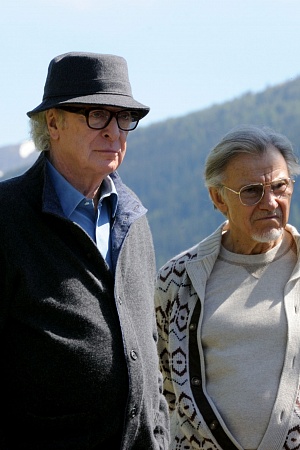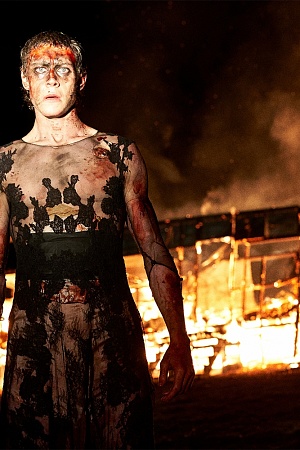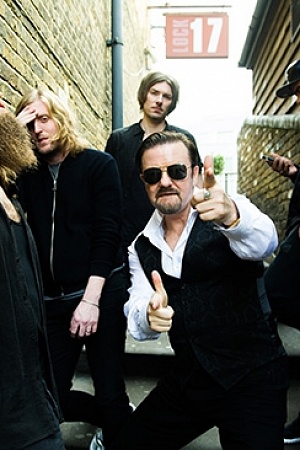The King's Choice ★★★1/2
In 1905 a Danish prince was elected to the throne of Norway. The King’s Choice begins with grainy archival footage of the arrival of the new royal family. The streets are lined with people. The cheering crowd scenes segue into a different kind of rally, and then Adolf Hitler’s familiar hectoring face fills the screen. Norway, like many smaller nations, was neutral at the start of World War II. Neutrality did little to prevent invasion. When a German naval flotilla arrived in Oslofjord on 9 April 1940 and was fired upon by Colonel Birger Eriksen (Erik Hivju) and the recruits under his command at Oscarsborg Fortress, King Haakon VII was sixty-eight years old and suffering from severe back pain. The successful torpedoing of the cruiser Blücher delayed the German invasion long enough for the government and the royal family to escape before Oslo fell. The King’s Choice follows the ensuing pandemonium of the next three days.
Continue reading for only $10 per month. Subscribe and gain full access to Australian Book Review. Already a subscriber? Sign in. If you need assistance, feel free to contact us.











Comment (1)
Leave a comment
If you are an ABR subscriber, you will need to sign in to post a comment.
If you have forgotten your sign in details, or if you receive an error message when trying to submit your comment, please email your comment (and the name of the article to which it relates) to ABR Comments. We will review your comment and, subject to approval, we will post it under your name.
Please note that all comments must be approved by ABR and comply with our Terms & Conditions.